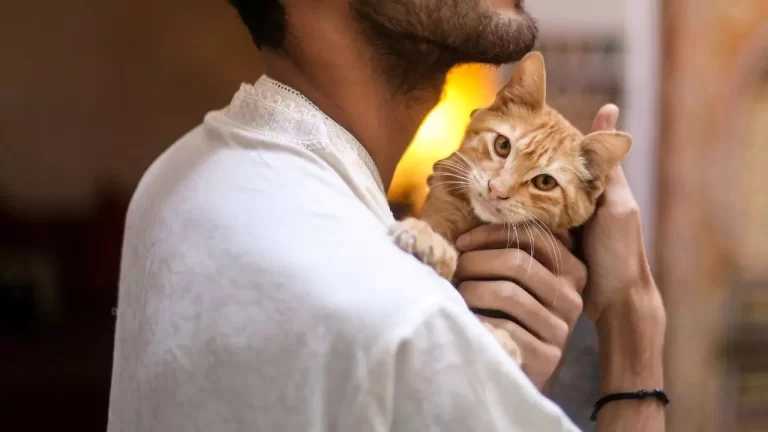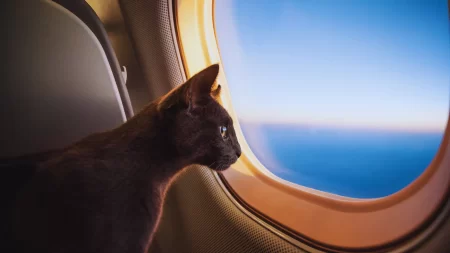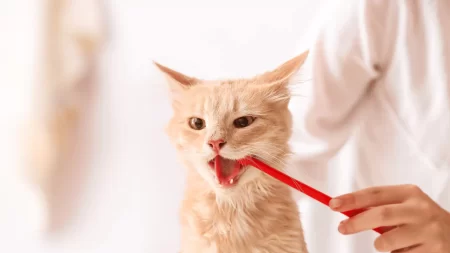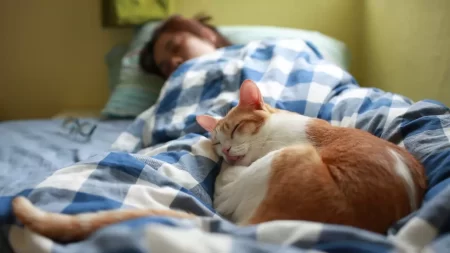No, cats are not directly mentioned in the Quran, the holy book of Islam. However, cats are highly regarded and respected in Islamic culture and tradition, as they are considered to be clean, pure, and beloved animals.
The Prophet Muhammad, the founder of Islam, had a great affection for cats and treated them with kindness and compassion.
There are many stories and teachings in the Hadiths, the collections of the sayings and deeds of the Prophet Muhammad, that illustrate the importance and value of cats in Islam.
Cats in Islamic Culture and Tradition
Cats are admired for their cleanliness in Islam. They are considered to be ritually clean, meaning that they do not invalidate one’s state of purity for prayer or worship. They are thus allowed to enter homes and even mosques, including Masjid al-Haram, the sacred mosque in Mecca that houses the Kaaba, the holiest site in Islam.
Cats are also seen as symbols of purity, protection, and good luck in Islamic culture. They are believed to be a sign of spiritual guidance and a messenger of Allah. As such, cats are often seen as an essential part of the Islamic faith.
The Beloved Status of Cats in Islam
Islam respects animals as God’s creations. Cats are especially revered in Islamic culture. Islam condemns their abuse as a sin. A popular Hadith describes a woman’s Hell punishment for imprisoning a cat until it died. However, another Hadith celebrates a prostitute whom Allah pardoned for watering a thirsty cat.
Muhammad loved cats, as recorded in the Hadiths. He loved his cat Muezza and treated her tenderly. He smiled and softly caressed his pet cat three times, allowing all cats to settle straight. Muslims believe that caring for cats shows faith and piety.
Islamic Teachings on Treating Cats
Islam has restrictions on animal care, including cats. Shariah requires compassion for all living things. Like other creatures, cats have rights in Islam. They deserve food, water, housing, health care, safety, and respect.
The fact that one may wash before prayer with a cat’s water is one of the most intriguing Islamic teachings on cats. In Islam, cats are clean and pure.
Muezza and Muhammad’s tale is another renowned Islamic cat-treatment instruction. The call to prayer roused Muhammad one day, according to this tale. His cat Muezza was napping on his robe sleeve as he readied for prayer. Instead of waking her awake, he slashed his robe sleeve with scissors, leaving the cat alone. Muslims encourage animal care and respect, as seen in this narrative.
There are also many Hadiths that highlight the Prophet Muhammad’s interactions with cats and his teachings on their rights. For example:
- The Prophet Muhammad said: “A good deed done to an animal is like a good deed done to a human being, while an act of cruelty to an animal is as bad as cruelty to a human being.” [Sahih Muslim]
- The Prophet Muhammad said: “Whoever kills a sparrow or anything bigger than that without a just cause, Allah will hold him accountable on the Day of Judgment.” The listeners asked: “O Messenger of Allah! What is a just cause?” He replied: “That he will kill it to eat it, not simply to chop off its head and then throw it away.” [Sunan al-Nasa’i]
- The Prophet Muhammad said: “It is not fitting for anyone who has belief in Allah and His Messenger to harm his neighbor or harm his mount (animal).” [Sunan Ibn Majah]







